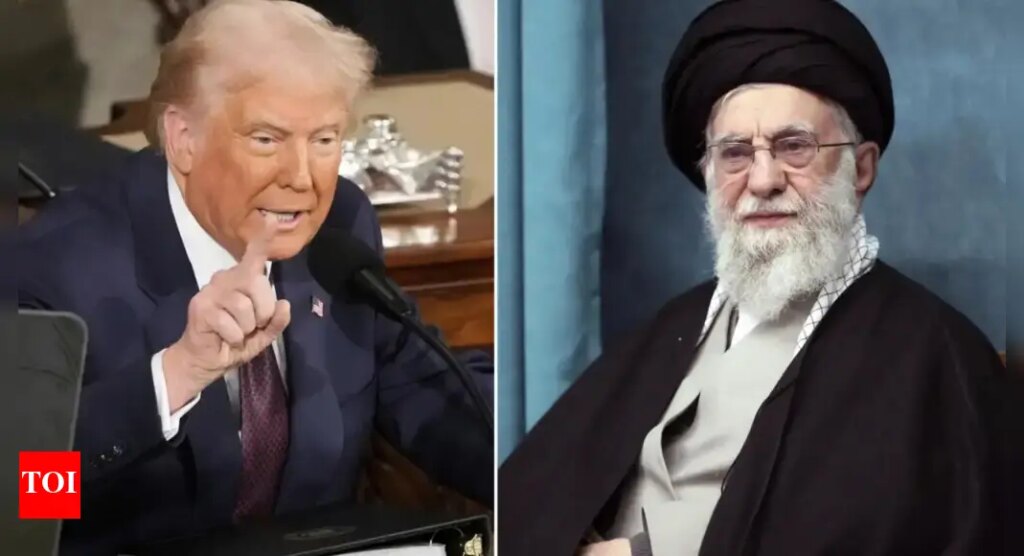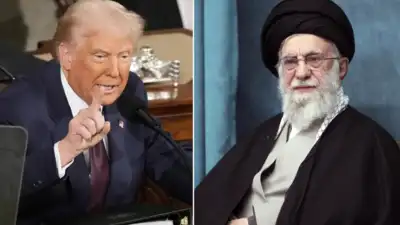PARIS: Europe played a central role in a 2015 accord that led Iran to restrict its nuclear programme enrichment but has become just an observer as the United States leads new efforts to reign in Tehran’s uranium enrichment, analysts say.
Alarm bells are ringing again in western capitals with UN nuclear watchdog chief Rafael Grossi warning on Wednesday that Iran was “not far” from possessing a nuclear bomb.
The topic will feature in Paris talks Thursday between US secretary of state Marco Rubio and French leaders. The second round of new US-Iran talks, mediated by Oman, are to be held in Rome on Saturday.
And while Iran has denied seeking a bomb, Israel and the US have stepped up warnings of possible military action against its capability.
Britain, France and Germany were among the guarantors of the 2015 accord that US President Donald Trump killed off when he withdrew from it in 2018. They will barely be involved this time. Despite holding four rounds of talks between October and February, all they can do now is support the diplomatic efforts going ahead.
“It’s a pity the Europeans, who started this diplomatic process 22 years ago and were playing a leading role in it, played their hand so poorly,” commented Ali Vaez, head of the Crisis Group think tank’s Iran project.
The European trio, he added, “have been sidelined because neither Iran nor the US believe they hold a lot of cards or have meaningful added value.”
“The Europeans seem doubly trapped, on the one hand because they are excluded from the current negotiations and restricted to the role of commentators,” said David Khalfa of the Jean-Jaures Foundation in Paris.
“On the other hand because they cannot afford to torpedo the chances of a new agreement, even if it is American-Iranian,” he added.
Khalfa said there was little chance of them returning to centre stage in the effort because of Trump’s “hostility” to Europe.
Europe also misjudged the stakes when Trump pulled the US out of the earlier accord in 2018, according to Thierry Coville, a researcher at the Institute of International and Strategic Relations (IRIS) in Paris. Trump called it “the worst deal ever”.
The 2015 accord was made between Iran and the five permanent members of the UN Security Council — Britain, China, France, Russia and the United States — plus Germany. It offered the easing of UN-backed diplomatic and economic sanctions in return for Iran easing back its uranium enrichment.
“The Iranians, who had wanted to stay in the accord, asked the Europeans to help by maintaining economic exchanges despite US sanctions,” said Coville.
But European firms fled the Iranian market, because of threats under US sanctions. And that has hit European credibility, Colville said.
Noting Iran’s reduced cooperation with the UN’s International Atomic Energy Agency, the European nations wrote to the UN Security Council in December raising the possibility of reviving sanctions, a process known as “snapback” sanctions.
But European diplomats acknowledge that they have very limited room for manoeuvre to become a credible player again. The US and Israel could be ready for punitive action against Iran by mid-2025, experts say.
Europe’s strategy now “is to make the Americans understand that it is in their interest to include them at some stage in the negotiations,” said Khalfa.
But new sanctions would reduce Europe’s ability to influence Iran, according to Vaez and could push Tehran to withdraw from the Non-Proliferation Treaty.
Iran exiting the 1970 treaty that is the cornerstone of global efforts to prevent the spread of nuclear weapons “will only create a bigger problem rather than resolve the existing one,” said Vaez.
Iran probably believes that “Trump has weight and so it is better to make an accord with him that could be sustainable,” said Coville.


